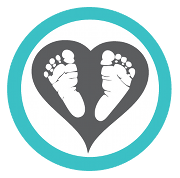 Constipation is one of the most common conditions of pregnancy and it can compound the risk of developing painful hemorrhoids so it's worth dealing with now. There are measures you can take to reduce these unpleasant symptoms.
Constipation is one of the most common conditions of pregnancy and it can compound the risk of developing painful hemorrhoids so it's worth dealing with now. There are measures you can take to reduce these unpleasant symptoms. Because the digestive process slows in pregnancy, constipation is even more common than in the general population. Here are some suggestions by Dr. Mercola, not specifically addressing pregnancy constipation but some of his suggestions are excellent. He is a proponent of natural products and his website does promote his own line. WeeCare does not endorse these products but his video about constipation is excellent so click the post title to see his video. We encourage you to discuss any supplements or medications with your doctor. While laxatives are helpful in pregnancy, this is not the best solution. Prevention and bowel training along with exercise, water intake and diet will make a difference.
Because the digestive process slows in pregnancy, constipation is even more common than in the general population. Here are some suggestions by Dr. Mercola, not specifically addressing pregnancy constipation but some of his suggestions are excellent. He is a proponent of natural products and his website does promote his own line. WeeCare does not endorse these products but his video about constipation is excellent so click the post title to see his video. We encourage you to discuss any supplements or medications with your doctor. While laxatives are helpful in pregnancy, this is not the best solution. Prevention and bowel training along with exercise, water intake and diet will make a difference.Ideas from his website, along with our own suggestions that particularly help pregnant women follow:
- Try squatting. This is the best, natural position to help expel stool from your colon and reduce your risk of hemorrhoids, and it’s still the way many people around the world go to the bathroom. In your home, you can get many of the same benefits by placing a stool near your toilet to raise your knees, purchasing a special squatting device to modify your toilet, or simply squatting on your own toilet.

- Eat plenty of fiber-rich foods. Vegetables are phenomenal sources of fiber. Fruits with skins, whole grains (not just darker-colored white bread), beans are very good. See this chart for fiber content of foods. For added fiber to help normalize your stool, try whole organic flaxseeds. Grind the seeds in a coffee grinder, then add a tablespoon or two to your food.You can also try psyllium. Psyllium is unique because it's an adaptogenic fiber, which means it will help soften your stool if you’re constipated, or reduce frequency of your bowel movements if you have loose stools. Products such as Metamucil employ this substance and it is safe in pregnancy.
- Exercise regularly. This helps stimulate circulation and intestinal function, causing your bowels to move properly - so, take a walk!
- Schedule bathroom time. Sometimes our busy lives make us postpone this important function and by so doing, we train our body to hold the stool and then, especially if we are not well-hydrated, constipation ensues. Plan time daily for this, even when you don't think you need to "go" and relax with a book, puzzle, etc. You can train yourself - your body will get the idea but it starts in your head.

- Drink plenty of water. If your body perceives dehydration (before you even feel thirsty), it will draw fluid from the colon, leaving the stool hard and dry. Ensuring adequate water intake will reduce this problem. Keep a water bottle handy and sip, sip, sip.
- Supplements? Some women who are enemic in pregnancy take iron supplements on the recommendation of their doctor. In some cases this may aggravate constipation. If this is the case with you, it is important that you increase your iron-rich foods as these sources of iron are more easily digested than supplemental iron taken as medicine. Check this list for food suggestions, and include red meats, egg yolk, whole grains such as oatmeal, spinach and beans in your diet. Many of the iron-rich foods also contain good amounts of fiber so this dietary measure can help in two ways.

























No comments:
Post a Comment
This blog only reviews comments before posting to avoid hijacking. We will respond to comments Mon-Thurs but we are closed Fri-Sun and legal holidays.